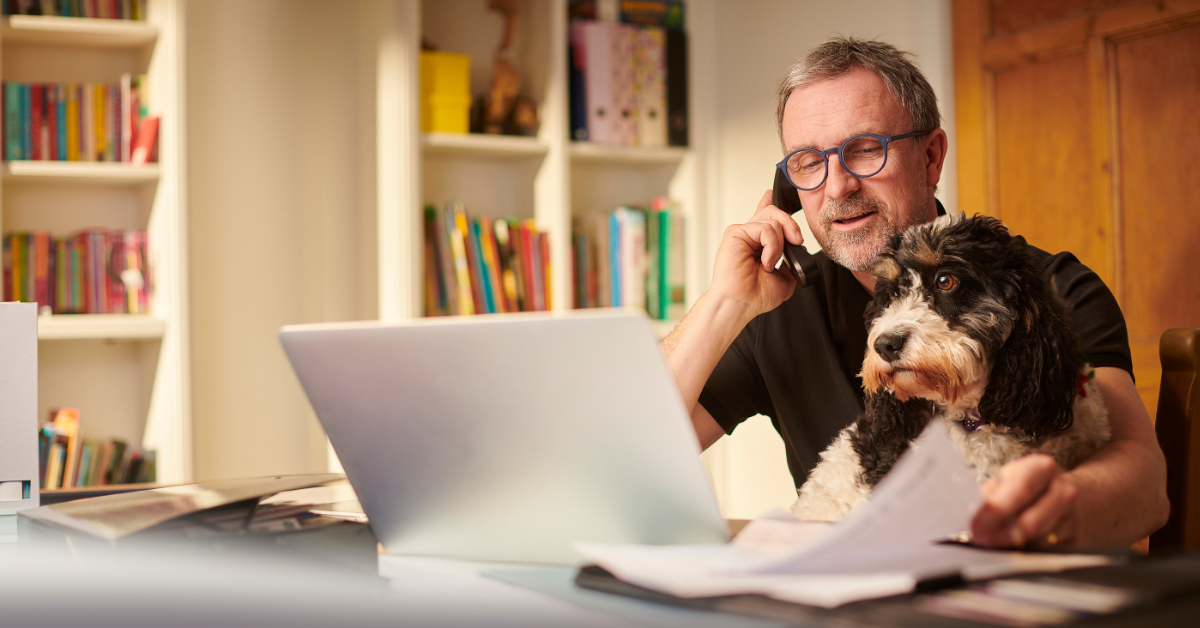Dealing with financial difficulties can be overwhelming, especially for small business owners in South Florida. If you find yourself struggling with debt, it’s essential to know your options. One such option is Subchapter V of Chapter 11 bankruptcy, which offers several advantages for eligible small business debtors. In this article, we will explore Subchapter V eligibility, its benefits, and how it can help you regain control of your financial situation.
Subchapter V Eligibility Explained

Subchapter V, also known as the Small Business Reorganization Act, was introduced to provide a streamlined and cost-effective bankruptcy process specifically designed for small business debtors. This new subchapter aims to help small businesses reorganize their debts and resume operations while maintaining their business activities.
To qualify for Subchapter V, a debtor must meet certain eligibility requirements. The primary criterion is that the debtor must be engaged in commercial or business activity, excluding those whose primary activity is owning single-asset real estate.
Additionally, the debtor must have debts below a specific debt limit. As of 2023, the debt limit for Subchapter V eligibility is $7.5 million and is subject to change in 2024. This debt limit includes both secured and unsecured debts, but excludes debts owed to affiliates or insiders. Also, at least 50% of the debts must be from commercial or business activities.
The Importance of Meeting Subchapter V’s Eligibility Requirements
Failing to meet the eligibility requirements above can result in the debtor being unable to proceed under Subchapter V and may necessitate pursuing a traditional Chapter 11 bankruptcy or another form of debt relief. Working with an experienced bankruptcy attorney can help ensure that you accurately assess your eligibility for Subchapter V and navigate the bankruptcy process effectively.
It’s important to note that only the debtor can initiate this petition and it cannot be forced by creditors or other parties.
Benefits of Subchapter V for Small Business Debtors

Subchapter V offers several advantages for eligible small business debtors, making it an attractive option for those seeking to reorganize their debts and improve their financial situation. Some of the key benefits include:
- Streamlined Process: Subchapter V simplifies the bankruptcy process compared to traditional Chapter 11 cases. For example, there is no requirement for a disclosure statement, which saves time and reduces costs.
- Increased Debtor Control: In a Subchapter V case, the small business debtor remains in control of their assets and operations as a “debtor in possession.” This allows the debtor to continue running their business while working towards a successful reorganization.
- Reduced Costs: Subchapter V cases tend to be less expensive than traditional Chapter 11 cases due to the streamlined process and reduced reporting requirements.
- Faster Resolution: Subchapter V cases typically move more quickly through the bankruptcy court, allowing the debtor to emerge from bankruptcy and resume normal business activities sooner.
- Greater Flexibility: Subchapter V offers more flexibility in terms of plan confirmation, including the ability to modify the rights of secured creditors and the elimination of the absolute priority rule, which can make it easier for the debtor to confirm a reorganization plan.
Explained: The Small Business Reorganization Act Of 2019

The Small Business Reorganization Act of 2019 (SBRA) introduced Subchapter V to Chapter 11 of the United States Bankruptcy Code, which aims to provide a more accessible and cost-effective path for small business debtors to reorganize their debts. The main purpose of the act is to assist small businesses in addressing their financial challenges by streamlining the bankruptcy process and promoting a more efficient small business debtor reorganization.
One of the key aspects of the SBRA is that it is tailored specifically for “small business debtors,” which are defined as those with aggregate non-contingent liquidated secured and unsecured debts of no more than $7.5 million (adjusted periodically). This threshold was designed to ensure that the benefits of Subchapter V are reserved for true small businesses in need of relief.
The SBRA also establishes an appointed trustee to oversee the case and help facilitate the reorganization process. Unlike a typical Chapter 11 trustee, the Subchapter V trustee does not take control of the debtor’s assets and operations. Instead, they assist the debtor in developing and confirming a reorganization plan, negotiating with creditors, and ensuring compliance with statutory requirements.
Additionally, the SBRA introduces a new requirement for small business debtors: they must file a reorganization plan within 90 days of filing for bankruptcy. This requirement encourages swift action on the part of the debtor and fosters a more efficient resolution of the bankruptcy process.
Overall, the Small Business Reorganization Act of 2019 has significantly improved the bankruptcy landscape for small business debtors, making it more feasible to pursue a successful reorganization and emerge from bankruptcy with a stronger financial footing.
Navigating Subchapter V Eligibility with Professional Guidance

Determining whether your small business qualifies for Subchapter V eligibility can be a complex process. It’s crucial to consult with an experienced bankruptcy attorney who understands the intricacies of the United States Bankruptcy Code and can help you navigate the process.
At LSS Law, we are committed to helping individuals and businesses in South Florida overcome financial difficulties and open the door to a brighter future. Our team of experienced bankruptcy professionals can help you determine your eligibility for Subchapter V and guide you through the process, ensuring that you make informed decisions every step of the way.
If you’re a small business owner in Florida struggling with debt, don’t hesitate to explore the benefits of Subchapter V eligibility. With the right guidance and support, you can regain control of your financial situation and pave the way for a successful future.
The Role of the Subchapter V Trustee

One unique aspect of Subchapter V bankruptcy is the appointment of a Subchapter V trustee. This trustee plays a crucial role in facilitating the debtor’s reorganization process and ensuring that the interests of creditors are protected. Some of the key responsibilities of the Subchapter V trustee include:
- Assisting the debtor in developing a reorganization plan
- Monitoring the debtor’s compliance with reporting requirements and applicable state law
- Ensuring the debtor makes timely planned payments to creditors
- Providing information and assistance to parties involved in the bankruptcy case
- If necessary, investigating the debtor’s financial affairs and operations
The involvement of the Subchapter V trustee can provide additional oversight and support for small business debtors, helping to increase the likelihood of a successful reorganization.
Considerations for Small Businesses Contemplating Subchapter V Bankruptcy

While Subchapter V offers numerous advantages for eligible small business debtors, it’s important to carefully consider whether this bankruptcy option is the best fit for your specific situation. You’ll want to consider the bullets below:
- The financial state of your business: Subchapter V is designed for businesses that are experiencing financial difficulties but have the potential for a successful reorganization. If your business is not viable, a Chapter 7 liquidation may be a more appropriate option.
- The complexity of your debts: Subchapter V best suits businesses with relatively straightforward debts. If your business has complex debts, such as multiple secured creditors or tax liabilities, a traditional Chapter 11 bankruptcy may provide more flexibility in addressing these issues.
- The impact on your credit: While bankruptcy can initially have a negative impact on your credit score, following the correct recommendations and successfully completing a Subchapter V reorganization can help improve your credit over time.
Ultimately, the decision to pursue Subchapter V bankruptcy should be made in consultation with an experienced bankruptcy attorney who can help you evaluate your options and determine the best course of action for your specific circumstances.
The Disclosure Statement in Subchapter V Bankruptcy Cases

In a traditional Chapter 11 bankruptcy case, the debtor is required to prepare and submit a disclosure statement to the bankruptcy court. This document provides detailed information about the debtor’s financial affairs, allowing creditors and other interested parties to make an informed judgment about the proposed reorganization plan.
However, in Subchapter V cases, the Bankruptcy Code eliminates the requirement for a separate disclosure statement, streamlining the process and reducing costs for small business debtors. Instead, the debtor’s reorganization plan must include sufficient information for creditors to make an informed judgment about the plan.
This simplified process can save time and resources for small business debtors, allowing more time to focus on reorganization and emerging from bankruptcy with a stronger financial foundation.
The Absolute Priority Rule and Subchapter V Bankruptcy

In a traditional Chapter 11 bankruptcy case, the absolute priority rule requires that all general unsecured creditors be paid in full before equity security holders (such as shareholders) can receive any distribution from the debtor’s estate. This rule can make it difficult for small business owners to retain ownership and control of their businesses after bankruptcy.
However, Subchapter V modifies the absolute priority rule, allowing small business debtors to retain their equity interests in the business, even if general unsecured creditors are not paid in full. This modification is contingent upon the debtors committing all of their projected disposable income to make plan payments for a period of three to five years.
By easing the absolute priority rule, Subchapter V provides small business debtors a greater opportunity to maintain ownership and control of their business as they work towards a successful reorganization and a brighter financial future.
Subchapter V Eligibility and Publicly Traded Companies
While Subchapter V is primarily designed to assist small businesses, publicly traded companies may also qualify for Subchapter V relief, under certain circumstances. According to the United States Bankruptcy Code, a debtor is considered a small business debtor if they are engaged in commercial or business activities and meet the debt limit requirements, regardless of whether they are publicly traded or not.
However, the Securities Exchange Act reporting requirements may still apply to publicly traded companies undergoing a Subchapter V bankruptcy process. These reporting requirements can include submitting periodic financial reports, proxy statements, and other required documents to the Securities and Exchange Commission (SEC). It is crucial for publicly traded companies considering Subchapter V to consult with an experienced bankruptcy attorney to ensure compliance with all applicable laws and regulations.
The Role of Tax Returns in Subchapter V Eligibility
In order to establish eligibility for Subchapter V, debtors must provide copies of their most recent federal income tax returns or a statement explaining why such returns are not available. This requirement is in place to ensure that the debtor’s financial information is accurate and up-to-date, allowing the bankruptcy court and creditors to make informed decisions about the debtor’s reorganization plan.
Filing accurate tax returns and maintaining proper financial records is essential for small business debtors seeking to take advantage of Subchapter V’s streamlined bankruptcy process. Failure to provide the required tax returns or an adequate explanation for their absence may result in the debtor being deemed ineligible for Subchapter V relief.
Working with a knowledgeable bankruptcy attorney can help debtors navigate the complex eligibility requirements of Subchapter V and ensure that all necessary documentation is provided to the bankruptcy court in a timely manner.
Bankruptcy Threshold Adjustment and Its Impact on Subchapter V Eligibility
The Consolidated Appropriations Act of 2021, which included the Technical Corrections Act, introduced a temporary increase in the debt limit for Subchapter V eligibility. This adjustment raised the debt limit from $2,725,625 to $7,500,000, significantly expanding the number of small business debtors who can qualify for Subchapter V relief. This increase is set to expire on June 21, 2024, unless extended by further legislation.
The increased debt limit has provided a lifeline to many small businesses struggling with the financial fallout of the COVID-19 pandemic, allowing them to access the streamlined and cost-effective Subchapter V bankruptcy process.
The Significance of the Petition Date in Subchapter V Bankruptcy Cases
The petition date plays a critical role in determining a debtor’s eligibility for Subchapter V relief. Small business debtors who wish to take advantage of the temporarily increased debt limit must file their bankruptcy petition before the expiration of the threshold adjustment on June 21, 2024.
The petition date also has implications for other aspects of a Subchapter V bankruptcy case, such as the automatic stay, which takes effect upon filing the bankruptcy petition. The automatic stay provides immediate relief to the debtor by halting collection efforts, foreclosures, and lawsuits against the debtor and their property.
Understanding the importance of the petition date and working with an experienced bankruptcy attorney, small business debtors can strategically plan their Subchapter V bankruptcy filing to maximize their chances of a successful reorganization and a brighter financial future.
Subchapter V Eligibility FAQ – Your Questions Answered
How do I know if my business is eligible for Subchapter V relief?
To be eligible for Subchapter V relief, your business must meet certain criteria, including having less than $7,500,000 in secured and unsecured debts, at least 50% of the debt must be from business, and currently actively engaged in commercial or business activities. It’s essential to consult with a knowledgeable bankruptcy attorney to determine if your business meets Subchapter V’s eligibility requirements.
What is the difference between Chapter 11 and Subchapter V bankruptcy?
Subchapter V is a streamlined and cost-effective alternative to traditional Chapter 11 bankruptcy designed specifically for small business debtors. While both options allow businesses to reorganize their debts and continue operations, Subchapter V offers a more expedited process, reduced reporting requirements, and the elimination of certain fees associated with Chapter 11 bankruptcy.
How does the temporary increase in the debt limit for Subchapter V eligibility affect my business?
The temporary increase in the debt limit for Subchapter V eligibility (set to expire on June 21, 2024) means that more small businesses can qualify for the streamlined Subchapter V bankruptcy process. If your business has debt less than $7,500,000, you may be eligible for Subchapter V relief, but it’s crucial to act before the increased debt limit expires.
What role does the Subchapter V trustee play in the bankruptcy process?
The Subchapter V trustee is appointed by the bankruptcy court to oversee and facilitate the reorganization process. They help develop the debtor’s reorganization plan, mediate disputes between the debtor and creditors, and ensure the debtor’s compliance with the Bankruptcy Code. The trustee also monitors the debtor’s progress and reports to the court on the debtor’s financial status.
Can my business continue operating during the Subchapter V bankruptcy process?
Yes, your business can continue operating during the Subchapter V bankruptcy process. In fact, one of the primary goals of Subchapter V is to enable small business debtors to reorganize their debts and continue operations, preserving jobs and maintaining relationships with suppliers and customers.
How can a bankruptcy attorney help my business navigate the Subchapter V eligibility process?
An experienced bankruptcy attorney can help you determine if your business meets the eligibility requirements for Subchapter V relief, guide you through the bankruptcy process, and develop a strategic reorganization plan tailored to your business’s unique needs. They can also assist with filing the necessary paperwork, negotiating with creditors, and ensuring compliance with the Bankruptcy Code.
Contact Us to Learn More About Subchapter V Eligibility for Your Small Business

If your small business is struggling with debt and you’re considering bankruptcy, our dedicated team at LSS Law is here to help. We’re committed to helping you understand your options and navigate the Subchapter V eligibility process to secure the financial relief your business needs.
Contact us today to schedule a Bankruptcy Strategy Session at our Fort Lauderdale or Miami locations, or via a Zoom consultation. Call us at 954-466-0541 or email us at info@lss.law to get started on the path to a brighter financial future.






